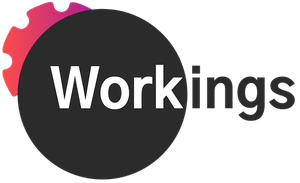What began in 2003 as a staid “repository for résumés” is on the cusp of having a billion users. Those users are posting more often (“the number of LinkedIn posts grew 41% from 2021 to 2023”), and—the real focus of the piece—the content of what people are sharing on the platform has changed considerably. In short, LinkedIn posts have become way more personal.
I have a lot to say about what I think people should post on LinkedIn, and what they should refrain from posting, but for now I’m channeling that advice to the small handful of clients helping me shape a new practice area here at Steyer. Today, I want to focus instead on this: 1) what I think all this LinkedIn sharing means and 2) what I recommend hiring managers/employers consider in response. (As I write this, I mainly have tech and tech-adjacent talents and companies in mind, but I think much of this applies to other sectors as well.)
What It Means
It means, I believe, that a lot of people are hurting. For sure there is plenty of posturing on LinkedIn, but my take is that many of the most personal posts are underpinned by sincere feelings of anxiety, fear, sadness, and loss. First the pandemic, then mass layoffs, then the mind-frack* that is AI. It’s all been seriously destabilizing, and in the absence of feeling any solid ground beneath their feet, many people are finding at least some fleeting solace in authenticity—no longer pretending that everything’s fine—and in community, connecting with others in similar boats.
What Hiring Managers/Employers Might Consider in Response
I’ll confess: in the past I’ve made snap calls on candidates based on what they’ve shared on LinkedIn. I’ve often felt justified in drawing these conclusions because we mainly hire content people—roles in which judgment about what to say, and sensitivity to tone, are paramount. But in the absence of something truly terrible, like hate speech, I think this is a time to show some grace, remembering that: navigating evolving norms on various social media platforms is tricky; finding one’s voice is a process requiring thousands of small, courageous forays; and no one should ever be reduced to one moment in time. At the very least, making a more informed call, based on more information than a single post, seems to be the order of the day.
What do you think? Where do you come out on this?
Thanks for reading,
Kate
*Re. AI as a mindfrack: if this strikes you as a typo, that just means you need to watch Battlestar Galactica. 🙂 Also, I refer to AI as such because I find it BOTH glorious and terrifying. If you do too, come hang with us: every Tuesday morning (8am PT), Steyer Content hosts an open chat about AI, so that we can all learn from one another and enjoy the camaraderie of other humans as we make our way through this brave new world. Email me for the link: kwalton@steyer.net.


 Hello from Steyer!
Hello from Steyer!